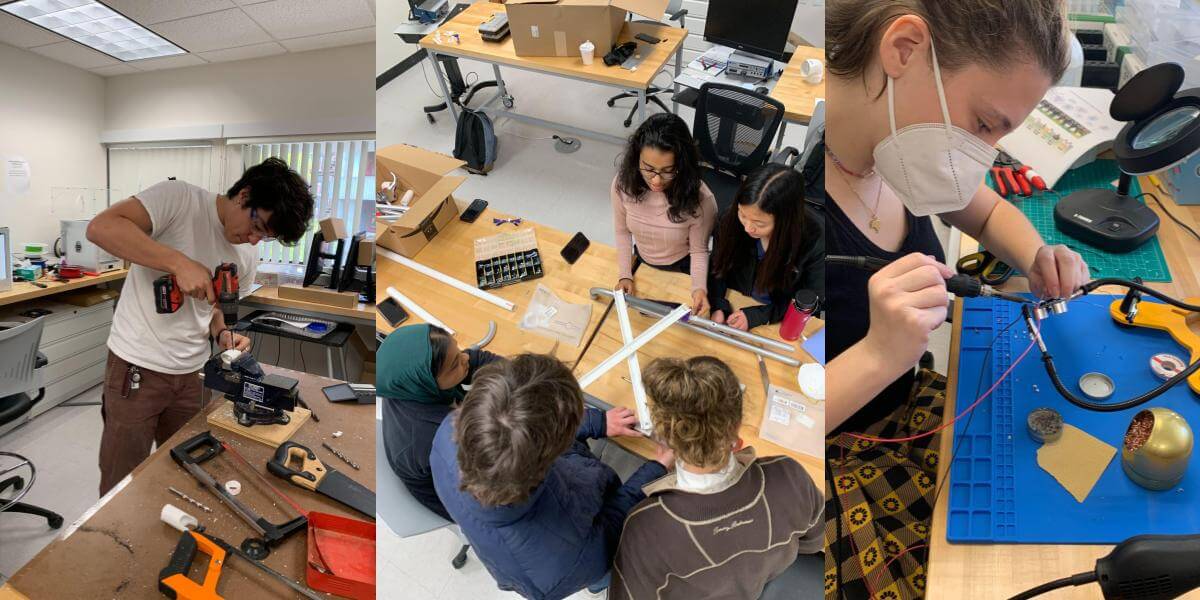Legislators, advisors brainstorm rural cultural revitalization- China.org.cn
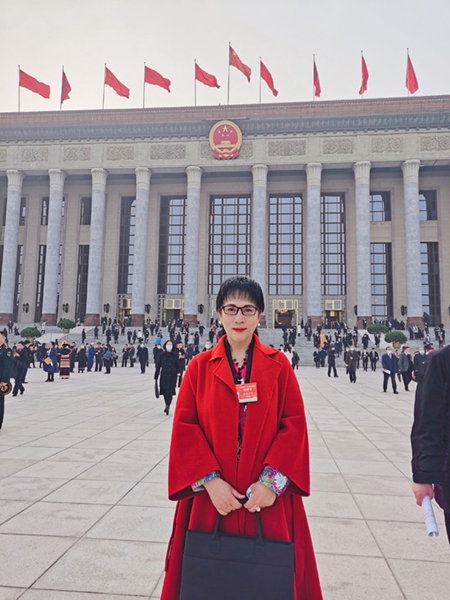
China’s nationwide legislators and political advisors who attended this 12 months’s “two periods” have proposed cultural approaches to rural revitalization.

Zongyong Zhuoma, a Tibetan soprano and a member of the 14th Nationwide Committee of the Chinese language Folks’s Political Consultative Convention (CPPCC). [Photo provided to China.org.cn]
Zongyong Zhuoma, a famend Tibetan soprano and a member of the 14th Nationwide Committee of the Chinese language Folks’s Political Consultative Convention (CPPCC), offered a proposal with the theme of strengthening rural cultural building and selling rural revitalization at this 12 months’s CPPCC assembly.
The proposal goals to spice up cultural and tourism sources in rural areas by attracting cultural expertise. She advised China.org.cn that integrating rural tradition into rural revitalization efforts can result in financial improvement and social stability, whereas enhancing the cultural panorama. Nevertheless, she famous the problem of attracting younger individuals to cultural expertise coaching and steered the institution of incentive applications.
Zongyong Zhuoma additionally proposed bettering rural cultural amenities, discovering and revitalizing rural cultural sources, and mixing conventional tradition with trendy life.
Moreover, she steered utilizing “Web Plus” to completely make the most of the benefits of new media and promote cultural tourism and attribute rural areas via varied channels and platforms, thus advancing the development of the “lovely countryside.”
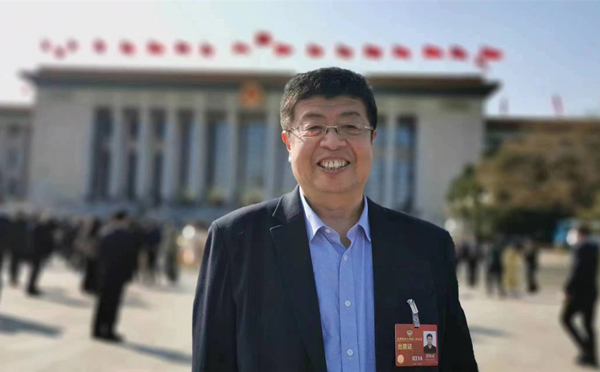
Zhang Yiwu, a political advisor and a professor of Chinese language research at Peking College, poses for a photograph as he attends the annual assembly of the Chinese language Folks’s Political Consultative Convention (CPPCC) in Beijing, March 4, 2023. [Photo provided to China.org.cn]
Zhang Yiwu, a political advisor and professor at Peking College, confused the worth of China’s cultural and intangible heritage for cultural and tourism improvement. Nevertheless, he famous that some initiatives lack scale and industrialization, resulting in low financial returns.
On-line reside streaming has emerged as a invaluable instrument for selling intangible cultural heritage consumption. Final 12 months, Douyin witnessed a 642% year-on-year improve in reside broadcasts of intangible cultural heritage initiatives. Round 210,000 individuals engaged with 498 intangible cultural heritage on-line shops to watch, study and admire the abilities related to intangible cultural heritage.
Zhang proposed the cultivation of latest on-line and offline consumption fashions to advertise intangible cultural heritage, by enabling high-quality cultural and tourism vloggers. He steered nurturing a brand new era of intangible cultural heritage inheritors with enterprise data and advertising and marketing expertise.
Wu Chengxiang, a deputy to the 14th Nationwide Folks’s Congress and professor at Jiangxi Regular College, referred to as for measures to additional strengthen the preservation of intangible cultural heritage, which is essential for rural revitalization. Regardless of having greater than 90,000 consultant inheritors of intangible cultural heritage in China, together with greater than 3,000 national-level consultant inheritors as of the tip of 2022, a lot stays to be completed.
To handle varied challenges, Wu steered surveying the dwelling circumstances of inheritors of intangible cultural heritage and offering help wherever vital. The federal government also needs to straight allocate funding to inheritors to cowl the preliminary prices of intangible cultural heritage actions. Inheritors ought to be inspired to discover new methods of selling their expertise, resembling e-commerce and model advertising and marketing. Moreover, Wu referred to as for higher emphasis on inheriting intangible cultural heritage in colleges to move on these expertise to the youthful era.
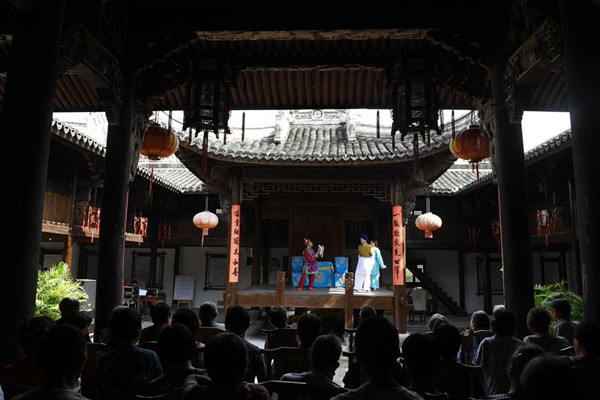
A file picture reveals performers performing the Shaoxing Opera in Jinzhulingjiao village of Xianju county, east China’s Zhejiang province. [Photo/Xinhua]
Xu Zerong, an NPC deputy and vice chairman of the Chaozhou Arts and Crafts Affiliation, has spent greater than a decade finding out porcelain-making methods. In line with Xu, incorporating cultural components into rural revitalization efforts can take it to the following stage.
Xu believes that utilizing the humanities and crafts trade to drive rural revitalization is a brand new channel and means of improvement.
Xu famous that many rural areas in China have wonderful surroundings and handy transportation, and connecting the upstream and downstream trade chains of rural arts and crafts is essential for attracting inventive expertise and selling native financial improvement.
Xu steered establishing ceramic artwork analysis and studying facilities in rural areas to draw college students to study and move on Chinese language tradition, and brushing such amenities with rural tourism initiatives to assemble a rural arts and crafts trade system and promote rural financial improvement.
Chinese language artist Shu Yong, a nationwide political advisor, proposed incorporating social forces in reviving rural tradition.
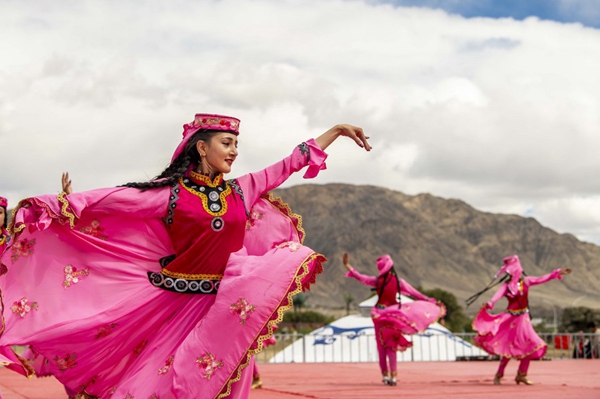
A file picture reveals performers dancing through the Dragon Boat Pageant at an intangible cultural heritage exhibition park in Taxkorgan Tajik autonomous county, northwest China’s Xinjiang Uygur autonomous area. [Photo/Xinhua]
His recommendations embody encouraging individuals to prepare native, nationwide, and international-level cultural and inventive occasions, in addition to cultivating rural cultural and inventive expertise. He additionally proposed cultural and inventive competitions in rural areas to establish and develop gifted people.
Moreover, the artist steered incentivizing the personal sector to ascertain rural artwork galleries, museums, and cultural facilities and to develop rural cultural merchandise and merchandise.

